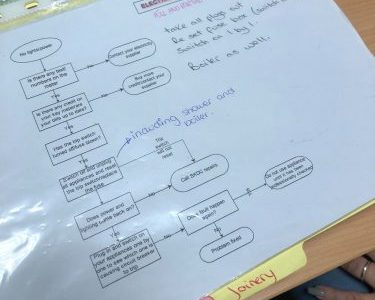Housing Repairs
Weeknotes - 24 January 2020
We’re working on an alpha project with DXW Digital and our three partner authorities Greenwich, Lincoln and South Kesteven councils exploring approaches for the design of a common pattern for reporting, diagnosing and scheduling of housing repairs. The project is part of MHCLG’s local digital collaboration fund.
We send out week notes to update the team and stakeholders on the progress of the project. The week notes will highlight the key things we’re working on, acknowledge achievements and show progress. They will also outline any blockers, and what we’re planning to work on next.
You can view a recording of our first show and tell here and see the slides here. Our next show and tell will be on Monday 3 February at 2.30pm in Lincoln Council. We’ll make a recording available shortly afterwards.
Along with our show and tells, these weeknotes are the main way you will find out about the project so please read on. Get in touch with Alex with any questions or feedback.
What are we thinking about?
So far, we’ve tested elements of the reporting journey with residents. The feedback and learning from that has been invaluable in understanding the elements that need to be addressed in a common service pattern.
This sprint we’re switching our focus to internal users – the council officers who interact with residents who have a problem that needs fixing. By doing this, we’ll get a deep understanding of the information that the council needs, and what they do with it. This means that we can design a pattern that works for the organisation as well as for the end user. An unsuccessful pattern would only focus on one side of the interaction and would exacerbate problems for the other.
A 3 sprint (6 week) delivery timescale is short. It means we need to focus ruthlessly on scope and on making sure we are testing our riskiest assumptions and using knowledge that already exists in the design of similar services. Switching our focus to internal users in this sprint means that we’ve changed some of our plans for resident testing. By regularly planning and pivoting our focus when needed, means we are able to always focus on the highest value work which can change.
We’re keen to hear from other councils that have designed repairs services and to benefit from their learnings on what works, and what doesn’t, for both the user and the organisation.
What have we done in the last week?
- we held our first show and tell which was well attended and which stimulated some interesting conversation
- we started our second two-week sprint. Our goal for this sprint is to design, build and test for internal users
- the team has carried out observation sessions in Lincoln and Grantham, listening to calls and seeing the processes that are used for reporting and booking
- we’ve carried out some desk research into the right to repair scheme for council tenants.
- we’ve scheduled a critique workshop for reviewing artefacts that are designed as a result of this week’s observation sessions, and also scheduled resident testing sessions for our final sprint

Current diagnosis tools in a contact centre
What are we planning to do next?
- we’ll be analysing the outputs of the observation sessions, and designing some artefacts through low-fidelity prototyping which we’ll test with internal users in Southwark and Greenwich in a workshop on Thursday
- a short technical discovery starts next week. For this, we’ll learn in more detail the constraints of the technologies that support the housing repairs service, and the things we need to be aware of for a common service pattern
Who is on the dxw team next week?
- Daria Kwiatkowska (service designer)
- Debs Durojaiye (interaction designer)
- Vita Mangan (user researcher)
- Alex Yedigaroff (transformation manager)
- James Smith (technical architect)
Page last updated: 11 March 2020
